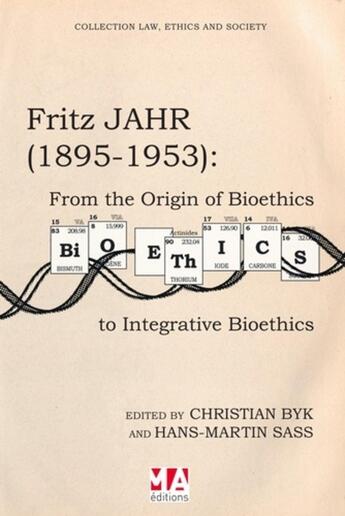Des idées de lecture pour ce début d'année !
Passionné(e) de lecture ? Inscrivez-vous
gratuitement ou connectez-vous pour rejoindre la
communauté et bénéficier de toutes les fonctionnalités du site !

Not only humans and other biological creatures, but also cultures and sciences, communities and corporations have a life of their own; they develop and grow; they are successful or fail; they communicate and cooperate; they may be in conflict or in harmony with each other. The term 'bio-ethics' was coined by Fritz Jahr (1895-1953), a Protestant pastor and educator in Halle an der Saale, in 1926 with the intention to call for a conceptual and practical broadening of moral obligations not just to fellow humans but towards all forms of life and symbiotic living-together. His Bioethical Imperative 'Respect every living being in general as an end in itself and treat it, if possible, as such!' did not find much recognition or support in the weltanschauung battles before and during the Nazi times in Germany. We all have learned that the 'birth of bioethics' occurred in 1976 in the United States of America as a 'bilocal birth' in Madison, Wisconsin, and in Washington, DC, associated with the names of Van Rensselar Potter, Andre Helleghers, and Sargent Shriver; and some of us had been involved developing and distributing this model of 'bioethics' as being somewhat identical with medical ethics. It was only at the beginning of this century that Jahr in his integrative and integrating approach was rediscovered as the true «Father of Bioethics».
Il n'y a pas encore de discussion sur ce livre
Soyez le premier à en lancer une !

Des idées de lecture pour ce début d'année !

Si certaines sont impressionnantes et effrayantes, d'autres sont drôles et rassurantes !

A gagner : la BD jeunesse adaptée du classique de Mary Shelley !

Caraïbes, 1492. "Ce sont ceux qui ont posé le pied sur ces terres qui ont amené la barbarie, la torture, la cruauté, la destruction des lieux, la mort..."